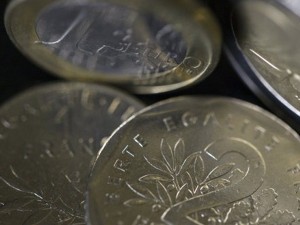Euro under pressure in Asian trade
TOKYO – The euro remained under pressure in Asian trade Monday, after hitting two-year lows against the dollar last week, with traders looking to a European finance ministers meeting later in the day.
The common currency was changing hands at $1.2290 in Tokyo trade against $1.2287 in New York late Friday, the euro’s lowest level against the dollar since July 2010.
Against the Japanese currency, the euro bought 97.90 yen from 97.83 yen in US trade on Friday.
“The latest eurozone meetings on bank bailout strategy produced a short-term euphoria that the crisis had somehow been solved,” said Daisuke Uno, strategist at Sumitomo Mitsui Banking Corp.
“But the reality of a lack of concreteness to the measures reached – which banks will get what funds, and when, etc. – has since struck,” he said, adding that the euro may soon test the 96 yen level.
Article continues after this advertisementTraders were looking to a meeting later Monday of finance ministers from the 17 nations that use the single currency, who are under pressure to flesh out a plan agreed last month to tackle the eurozone debt crisis.
Article continues after this advertisementUnder the deal, European leaders said they would use emergency funds to support ailing banks directly and to ease pressure on governments’ debt burdens through bond purchases.
The agreement also called for the injection of $150 billion of stimulus into the long-suffering 17-nation eurozone, but questions about details and implementation remained, dealers said.
The euro had already tumbled sharply after three central banks – the People’s Bank of China, the European Central Bank (ECB), and the Bank of England – last week took policy action to help their respective economies.
However, traders thought the ECB’s widely-expected move to cut its main interest rate to record lows did not go far enough to address the eurozone’s ills.
The dollar, meanwhile, fetched 79.67 yen in Tokyo, little changed from 79.62 yen in New York trade after a weak US jobs report for June led to renewed concerns about the state of the world’s largest economy.
